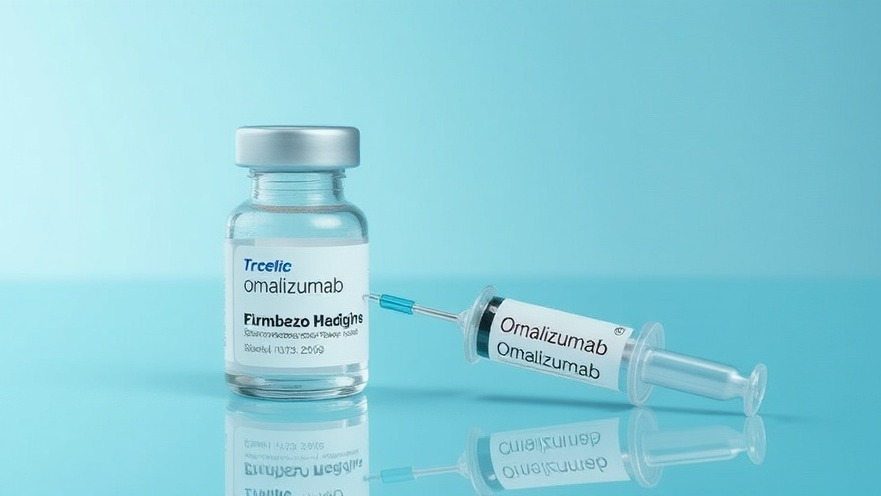
A New Era for Food Allergy Management: Omalizumab's Impact
The approval of omalizumab, known as Xolair, has been hailed as a breakthrough in the field of food allergy treatment. As families reflect on a year since this medication's introduction, reports indicate a growing optimism among patients and healthcare providers alike. Omalizumab is the first FDA-approved treatment aimed at reducing allergic reactions to multiple foods, providing vital support for individuals prone to severe allergic responses.
Dr. Robert A. Wood, a leading pediatrician at Johns Hopkins University, emphasizes that the excitement around omalizumab stems not just from its efficacy but also from its rapid adoption by medical practices. "In our practice, we have around 200 patients currently receiving regular injections after the medication was swiftly prescribed following its approval," he noted. This trend showcases the urgent need and expansive interest in treatments that can alleviate the burdens of food allergies.
Understanding Food Allergies and Omalizumab
Food allergies are a significant health concern affecting around 6% of the U.S. population, leading to potentially life-threatening reactions when exposed to allergens like nuts, milk, and eggs. Prior to the advent of omalizumab, treatment options mainly revolved around strict food avoidance, heightening anxiety for many families. With the introduction of Xolair, patients can experience a reduction in allergic reactions, ultimately providing a shield against accidental exposures.
According to recent studies, omalizumab targets the immunoglobulin E (IgE) receptor — the antibody responsible for triggering allergic responses. This preventative approach represents a shift in how medical professionals can assist their patients, aligning with the increasing demand for innovative therapeutic solutions.
Patients and Families: A Journey of Hope
The emotional weight of living with food allergies is palpable, which is why families have expressed relief and excitement about omalizumab. The ability for children and adults to tolerate small amounts of previously dangerous foods offers a new lease on life. Dr. Zachary E. Rubin shared, "Knowing that there’s a medically backed approach that significantly lowers the chances of severe reactions has been a game-changer for many families." Their intimate connection with patients is essential; understanding the impact of food allergies can help practitioners foster long-lasting relationships.
Practical Implications for Concierge Medical Practices
As a concierge medical practice owner, understanding the nuances of new treatments like omalizumab can position your practice as a leader in patient care. This medication not only enhances your ability to address food allergies comprehensively but also allows for deeper connections with patients who face these life-altering challenges. Implementing educational sessions, workshops, or discussions about the management of food allergies can bolster patient engagement and trust.
Additionally, recognizing the emotional landscape around food allergies will help in tailoring care. Using storytelling techniques and patient testimonials can add a personal touch to your practice's communications, making these complexities easier for families to navigate.
The Future of Food Allergy Treatments: Trends to Watch
The advancement of treatments like omalizumab signals a transformative era in food allergy management. Looking forward, we can anticipate further innovations and research aimed at refining treatments and enhancing patient lifestyle management. Staying informed about these trends will empower your practice to not only provide care but also act as a vital resource for families dealing with food allergies.
In conclusion, the year following the approval of omalizumab has been filled with excitement and progress in managing food allergies. As healthcare professionals, it is essential to leverage these developments to connect deeply with patients, elevating the quality of care in your practice. Embrace this opportunity to differentiate your practice by engaging in ongoing education and patient connectivity strategies, all while staying at the forefront of advancements in food allergy treatment.
 Add Row
Add Row  Add
Add 






Write A Comment